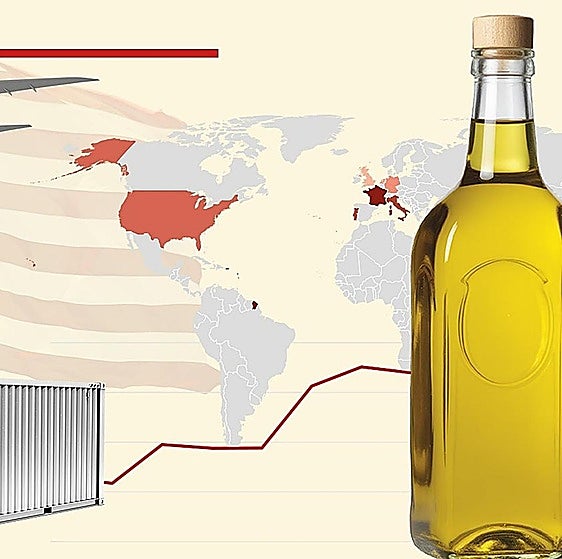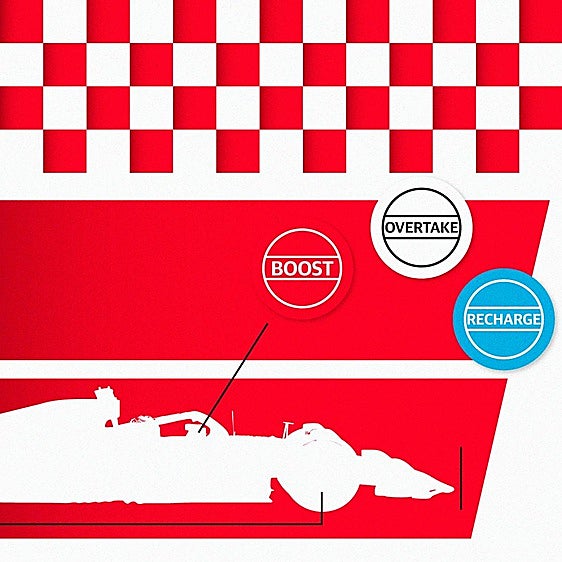Sugar: here's how food labelling can mislead us
Groups warn that the terminology used on food packaging can be designed to confuse the consumer
Marta Fernández Vallejo
Viernes, 2 de junio 2023
'No added sugars', with 'sweeteners', 'with whole cane sugar', 'contains naturally present sugars', 'low sugar content'.....These are the words we find on food labels that can mislead us. We don't know how to evaluate their meaning fully and they can lead us to consume some food believing that it has no sugar or very little when, in reality, it will cause our glucose levels to spike. Not only that - there are many untruths about how to sweeten food in a way that is less harmful to health.
Is it better to use honey or panela (unrefined cane sugar)? Or stevia? A study done by nutritionists from the University of the Basque Country (UPV/EHU) revealed some marketing 'tricks'.
The World Health Organization (WHO) makes it clear: the intake of too many 'free sugars' in our diet "is associated with obesity and the risk of suffering from numerous diseases." Therefore, it is important not to slip up.
"Phrases in the nutritional information such as 'no added sugars' are used to attract and promote the consumption of the product. In other words, it is used as marketing", highlighted the guide Answers To Doubts And Misinformation About Food And Nutrition. Don't Take Their Word For It!, published by the University of the Basque Country, with content written by teaching and research staff from the nutrition and obesity group at the Department of Pharmacy and Food Sciences.
One needs to get the details right in the first place to interpret the information provided with the food we consume, as so often the label can be like deciphering a hieroglyph. Sugar is present in our diet naturally and can also be added. The 'additives' are the refined sugars found in processed foods along with the sugars we spoon into our food and drink.
Others occur naturally in foods such as honey, syrup, fruit and vegetable juices, or juice concentrates. The expression 'free sugars' can include both or either sugar type.
There are several nutritional claims related to sugar and, although they are very similar, "they do not mean the same thing," indicated the authors of this study (Iván Gómez-López, Maitane González-Arceo, Helen Carr-Ugarte, Asier Léniz, María Teresa Macarulla, María del Puy Portillo Baquedano and Jenifer Trepiana).
Does the expression 'no added sugars' mean that it really is free of sugar? No, because, even if we remove that element, compounds such as modified starches can be added. They are from the same family as sugar and have a similar effect. "They are first cousins," stated the team.
With sweeteners we must be careful how much we consume
Sweeteners – saccharin, stevia, sorbitol... – also have their own small print. There are chemical or natural sweeteners, those with or without calories, and some sweeten more than others. They also differ in their possible toxicity levels if consumed to excess. For this reason, it is important to look at the 'recommended daily intake', which is established by committees of experts as this sets the amount of an additive (in this case, a sweetener) that a person can consume daily without posing an appreciable risk to their health. When choosing one, you must also take into account its 'glycaemic index', which shows the increase in blood glucose concentration that occurs after eating a food with this type of sweetener, an indicator that is "very important for diabetics".
If the food does not contain added sugars, but it has a large amount of naturally occurring sugars, then it must be labelled: 'contains naturally present sugars'. The UPV/EHU nutritionists also clarified the meaning of other labels used, such as 'sugar-free': "It can be included as long as the finished product itself contains less than 0.5 grammes of sugar per 100 grammes or millilitres."
And if the words 'low sugar content' are given in the nutritional information, they mean that the product does not contain more than 5 grammes per 100g of the product, or 2.5 millilitres if it is a drink.
We can check these proportions on the label, since the grammes of complex carbohydrates – starches and free sugars (mono and disaccharides such as lactose) – present in the food must be included.
As a guideline, the WHO recommends that adults with a normal body mass index should reduce their sugar consumption to about 25g per day, taking into account both the amount of sugar we add to our food and the quantities of sugars those foods already contain (from processing or in natural form).
Brown sugar, is it healthy?
The research group shed light on another very common mistake. They asserted that many consumers think that it is good to replace white sugar with brown sugar, thinking that it is more natural, yet "nothing can be further from the truth". "Both go through an almost identical refining process and are mostly made up of sucrose."
They also explain that with other substitutes "that are advertised as healthy alternatives" such as panela - known as unrefined cane sugar - or syrups, exactly the same thing happens. "They are mostly made up of sucrose and other simple sugars, so they are not healthy options either."
Is honey better than sugar?
It is a common myth: replacing sugar with honey is the best thing to do to sweeten coffee, yogurt, or tea. Yet honey "is not healthier than sugar."
The notion that honey is healthier than sugar stems from the truth that honey contains some vitamins and minerals not found in refined sugar. But keep in mind that the amount of honey consumed daily, from 10 to 20g, is very small, so we cannot consider it a main "source" of these vitamins and minerals. As for calories, both provide almost the same amount of energy: a tablespoon of 10g of refined sugar is 40 calories, only four more than honey. "Both generate a similar rise in blood glucose," the researchers stated. Honey also has another problem: since it is a natural product and many people think that it yields health benefits, "it can lead to greater consumption."


